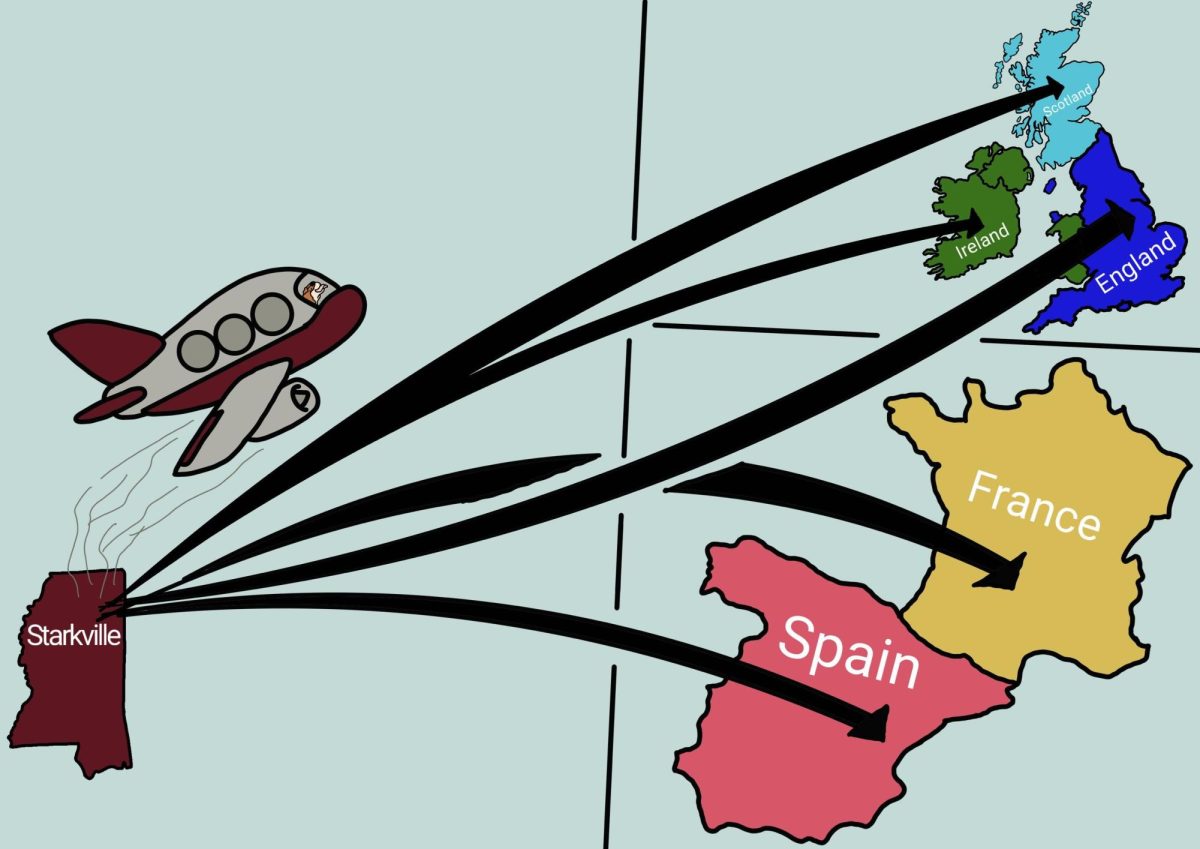Thursday night kicked off the beginning of this month’s Latino Film Series, sponsored by the Latin Student Association (LSA)and the Holmes Cultural Diversity Center in an effort to raise awareness about the Latin culture at Mississippi State University.
“Wetback,” the Undocumented Documentary, was chosen as the introductory film for the series in hopes of giving spectators insight on the background of immigrants from Mexico and Central America coming into the United States. The film shed light on the dangerous and chaotic lifestyle many immigrants faced.
Debbie Zepeda, graduate assistant for the diversity center, planned the event and said she hopes students got an introduction to why learning America’s Latin history is important.
“The Latin culture isn’t as familiar here as I think it should be. That’s why we have these events to engage everyone in conversation,” Zepeda said. “It also offers a chance for people from different cultural backgrounds to network.”
Last semester, MSU embraced the Latin Student Association (LSA) on campus. The organization welcomed students of all Latin ethnicities and origins. The overall population at MSU makes up no more than two percent.
Junior finance major Dylan Jesus Meza said it is important that people understand the Latino culture varies.
“Here on campus I have personally noticed that we try to find common interest, but we are diverse,” Meza said. “I am Chicano, but I also appreciate the cultures of my Latino friends’ countries.”
Katerine Saleme, graduate student from Colombia, said the population is composed of a diverse background as well, but a noticeable change is needed.
“The Latino population is increasing and becoming more united, and it is well supported by the community, but more work needs to be done to get a more dynamic population,” Saleme said.
Jorge Alvarez, a junior from Gulfport majoring in business administration, said more awareness should be created to give students the opportunity to embrace and welcome traditions and the cultural importance of all Latin nationalities.
“Not many programs bring attention to the Latino population,” Alvarez said. “Help could be provided by the university by showcasing Latino culture in some form or just supporting the Latino culture in general. The Latino culture has been around in the U.S. for a very long time. It’s slowly bleeding into what is known as the ‘American culture.’”
The films, which will expand on the Latino history, will be shown from 7 to 9 p.m. every Thursday of this month, excluding the week of spring break. “No Mas Bebes”along with “Selena” will be shown in honor of Women’s History Month, and “Cesar’s Last Fast” will be showcased in honor of the life of Cesar Chavez. The event is free and popcorn and punch will be provided.
Following LSA’s and the diversity center’s turnout at their last event, ‘Noche Latina,’ Zepeda expects to see many new faces.
“These events are held to bring everyone together,” Zepeda said. “I want the Latin population on campus to know that we are here for each other. We are here to help one another and our voices should be heard.”




















































































